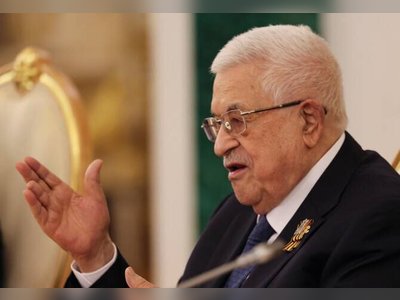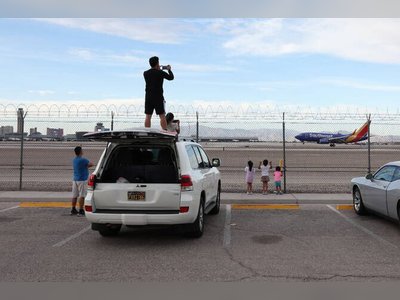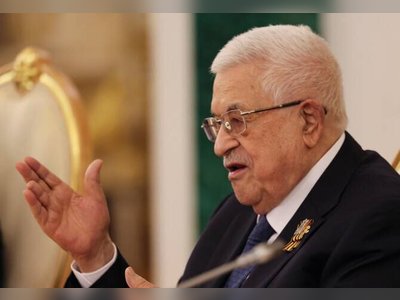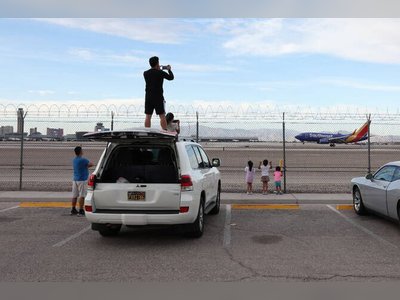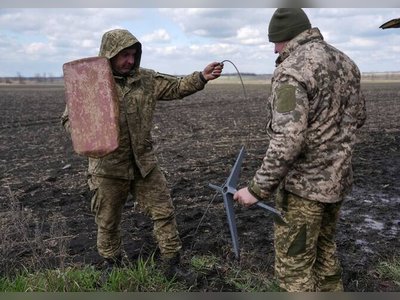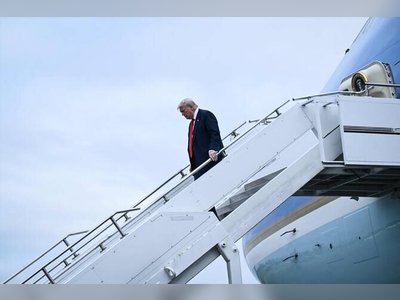
Iran and Europeans to Meet in Istanbul Amid Nuclear Program Deadlock
Latest talks center on possible return of sanctions, Iranian enrichment concerns
Diplomats from Iran and the European Union are scheduled to meet in Istanbul on Friday to address the ongoing stalemate regarding Iran's nuclear program.
The E3 nations—comprising Britain, France, and Germany—will engage with their Iranian counterparts at the Iranian consulate, marking the first meeting since a 12-day conflict between Iran and Israel in June that involved US bombings targeting nuclear facilities.
The negotiations will focus on the potential reimposition of sanctions lifted in 2015 under the original nuclear agreement.
A 'snapback' mechanism, which would reinstate these sanctions, remains an option according to a European diplomat who requested anonymity due to the sensitivity of discussions.
This move could be postponed if Iran demonstrates credible diplomatic engagement and resumes full cooperation with the IAEA (International Atomic Energy Agency) while addressing its highly-enriched uranium stockpile.
If no progress is made by the end of August, European leaders have stated that sanctions will be reimposed on Iran's nuclear program.
Tehran has responded by stating that the US needs to rebuild trust in order for negotiations to proceed.
Deputy Foreign Minister Kazem Gharibabadi emphasized that engagement hinges on several key principles, including regaining trust and respecting Iran's right to enrich uranium for its legitimate needs.
The talks are set to take place at the deputy ministerial level, with Majid Takht-e Ravanchi representing Iran following a similar meeting in May. This gathering includes representatives from the UK, France, Germany, and is expected to be attended by the EU’s deputy foreign policy commissioner.
The original 2015 agreement was signed by the US, Russia, China, as well as the E3 nations.
However, after the US withdrawal in 2018, only Russia and China cannot veto the reimposition of sanctions.
Since recent attacks on Iran by Israel and the US, which included American B-52 bombers hitting nuclear sites, tensions have escalated.
Accusations of hypocrisy have been directed toward the E3 for their support during these strikes.
Iranian Foreign Minister Abbas Araghchi has called out these actions while highlighting the country's readiness for further conflict.
The situation remains uncertain as both parties express openness to a negotiated solution but acknowledge the dwindling timeline for progress.
The E3 nations—comprising Britain, France, and Germany—will engage with their Iranian counterparts at the Iranian consulate, marking the first meeting since a 12-day conflict between Iran and Israel in June that involved US bombings targeting nuclear facilities.
The negotiations will focus on the potential reimposition of sanctions lifted in 2015 under the original nuclear agreement.
A 'snapback' mechanism, which would reinstate these sanctions, remains an option according to a European diplomat who requested anonymity due to the sensitivity of discussions.
This move could be postponed if Iran demonstrates credible diplomatic engagement and resumes full cooperation with the IAEA (International Atomic Energy Agency) while addressing its highly-enriched uranium stockpile.
If no progress is made by the end of August, European leaders have stated that sanctions will be reimposed on Iran's nuclear program.
Tehran has responded by stating that the US needs to rebuild trust in order for negotiations to proceed.
Deputy Foreign Minister Kazem Gharibabadi emphasized that engagement hinges on several key principles, including regaining trust and respecting Iran's right to enrich uranium for its legitimate needs.
The talks are set to take place at the deputy ministerial level, with Majid Takht-e Ravanchi representing Iran following a similar meeting in May. This gathering includes representatives from the UK, France, Germany, and is expected to be attended by the EU’s deputy foreign policy commissioner.
The original 2015 agreement was signed by the US, Russia, China, as well as the E3 nations.
However, after the US withdrawal in 2018, only Russia and China cannot veto the reimposition of sanctions.
Since recent attacks on Iran by Israel and the US, which included American B-52 bombers hitting nuclear sites, tensions have escalated.
Accusations of hypocrisy have been directed toward the E3 for their support during these strikes.
Iranian Foreign Minister Abbas Araghchi has called out these actions while highlighting the country's readiness for further conflict.
The situation remains uncertain as both parties express openness to a negotiated solution but acknowledge the dwindling timeline for progress.
